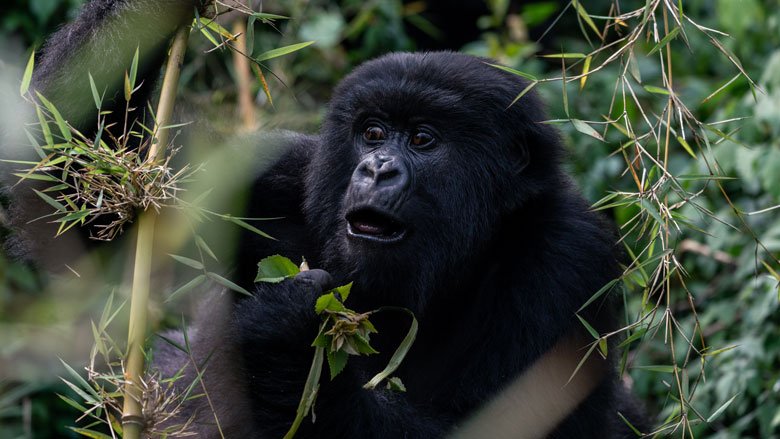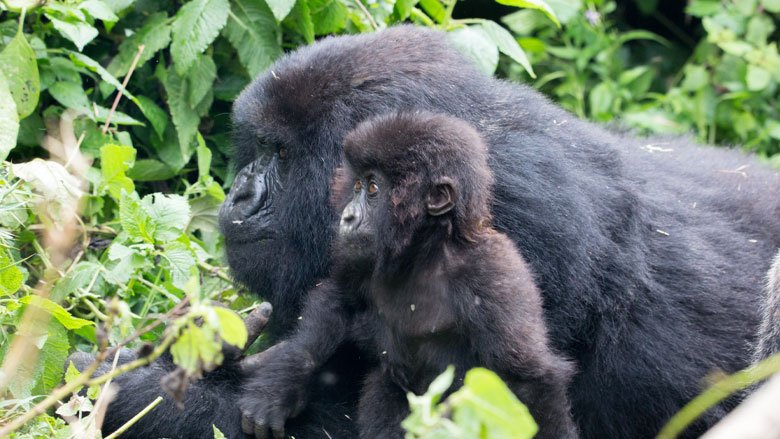Daniel Kanamugire has been in the tourism industry for close to 20 years. He has “seen it all,” as he puts it. The 52-year-old father of three took on a driving job in a tour company soon after demobilizing from the army in 2002. Five years later, he’d made enough money to acquire his own fully fitted, eight-seater tourist truck and decided to start his own business.
“Although we’ve come a long way, just when we thought we were firmly on track and it was time to reap the fruits of the many years of hard work we’d invested in this industry, then this thing COVID-19 came,” Kanamugire said.
Despite major obstacles like COVID, Rwanda’s tourism sector has been a driver of economic growth in recent years—one characterized by job creation, an emerging value chain, and growing investments. Over the last decade, it has mobilized investment from local and foreign investors and created thousands of jobs, all while creating growing international and local markets.
Following the pandemic and its socio-economic effects, the sector exhibited resilience and recovery as the economy re-opened. “Thanks to God, today things seem to be picking up. We have recovered our foreign clientele and are trying to diversify the market to entice more visitors and make up for the loss incurred during almost two years of lockdown,” said Kanamugire.
According to the World Bank’s 20th edition of the Rwanda Economic Update, Nature-Based Tourism (NBT), a sub-sector of tourism, bears the potential to continue to increase Rwanda’s economic growth. NBT generates an estimated 80% of the foreign exchange earned from the whole tourism sector. Its contribution to job creation is quantifiable: For every $1 million (about Rwf 1,050 million) that Nature-Based Tourism activities inject into the Rwandan economy, the Update says, 1,328 new jobs are created.
However, the report says that for the sector to maintain its trajectory, measures are needed to overcome the setbacks the sector has suffered and the long-standing challenges it faces. Key bottlenecks to its growth include limited diversification, with a significant portion of revenue coming from gorilla trekking.
Gorillas plus …
While Rwanda’s gorilla trekking is a unique tourist attraction, it faces competition from other wildlife destinations in the region, as well restrictions on the numbers of permits issued each year because of the need to preserve habitat for the gorillas, and their population, limiting Rwanda’s ability to raise prices or increase the number of tourists involved. Sector analysts say there is therefore a need to diversify Rwandan tourism to reduce its overdependence on gorilla trekking.
Some of the other challenges identified in the report include the risk of environmental degradation, especially a decline in natural vegetation and the deterioration of forests that threaten to reduce wildlife populations.
A decline in the ability of people in surrounding communities to remain economically sustainable could also exacerbate pressure on protected wildlife areas. And external factors, such as COVID-19, have illustrated that a dramatic decline in demand for tourism can be generated by health emergencies. Similarly, warming temperatures, resulting from climate change, are likely to reduce tourist demand in tropical regions and further degrade natural habitats.
More private investment urged
Among the recommendations made to mitigate these challenges, foster growth, and increase the economic impact of the sector, the Rwanda Economic Update recommends an increase in private sector investment to promote nature-based tourism. It forecasts that total financing of $97.5 million to $107.7 million is required for it from 2019 to 2030.
“It is important to rely on diversified sources of financing for both the public and private sector, including debt and non-debt instruments, and to establish the policy framework required to encourage investment in Nature-Based Tourism,” it says.
Expert analysis shows that increasing the amount of investment placed in natural capital, in order to support the sector, would improve fiscal sustainability and growth, whether the resources are primarily provided by public or private sources. But, importantly, the analysis maintains that encouraging increased private investment in NBT through public-private partnerships would raise GDP more than relying solely on public resources to do so.
Among the ways the private sector can be involved are through the outsourcing of investment and provision of management services in state-owned protected areas, or licensing commercial activities adjacent to these areas.
Sustainability-linked financing instruments, non-debt solutions tied to carbon markets, and private sector-led equity investments are some of the proven approaches to accessing private finance for Nature Based Tourism.
Bonds have been issued based on conservation activities or green investments, and funds established to support biodiversity and climate change adaptation and to prepare for catastrophes. Payments have been made to reward reductions in emissions for avoiding deforestation and forest degradation.
The Economic Update urges the adoption of strategic, tailored activities to diversify and expand NBT.
Given the constraints that exist to expanding gorilla trekking, the report recommends developing new tourism activities, including tourism based on sport, medical, education, water, urban exploration, and adventure sports. It says it will be important to modify policies that harm biodiversity, for instance by removing subsidies that damage the environment, and promote the private sector provision of environmental benefits.


